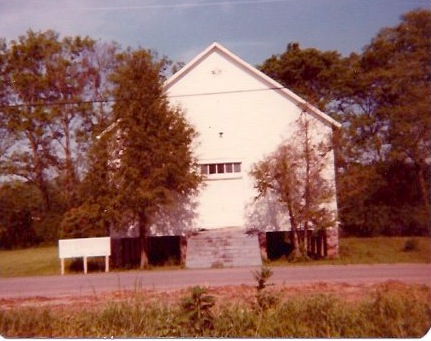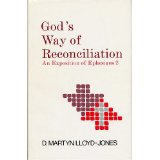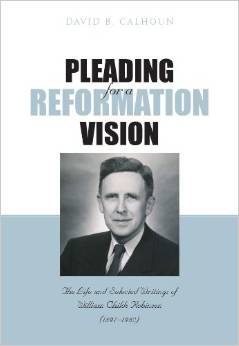Thirty-five years ago I finished college and began preaching full-time. For a year, I served as student pastor of Wales Presbyterian Church in Tennessee, a congregation in the old Southern Presbyterian Church (PCUS). Almost everything I owned fit into my 1970 Chevrolet Impala and off I went to preach the gospel.
In addition to a King James Bible, my preaching Bible at the time, I took three valuable books. One was was actually a booklet, the outlines and notes from John Stott’s expositions on Romans delivered at the 1979 Urbana Missions Conference. The first-time I heard Stott preach, I determined to follow his pulpit example best I could. A model expositor – clear, persuasive, and, above all, faithful to the text – he preached Christ and him crucified. At Reformed Theological Seminary, where I teach homiletics, my preaching classes listen to one of his sermons.
The second book was God’s Way of Reconciliation, Martyn Lloyd-Jones’ thirty-three expository sermons on Ephesians 2. I knew about the former minister of London’s Westminster Chapel only because my Dad had given me a cassette recording of Lloyd-Jones preaching on Ephesians 2:1-10, which can be listened to online at MLJ Trust. A few minutes into the sermon and I sensed that I was listening to something extraordinary. Three decades later my preaching students listen to and discuss the same sermon.
Coming across a copy of God’s Way of Reconciliation was a minor miracle. Christian bookstores in rural Tennessee are not ordinarily strongholds of Reformed theology. But while browsing the shelves of a Columbia store, I discovered God’s Way of Reconciliation, purchased it, and took home with me one of the finest examples of fervent Bible exposition and gospel preaching. Since then I’ve read many other collections of Lloyd-Jones’ sermons, but this one remains a favorite because of the encouragement it gave me during my first year of ministry.
The final book that deeply influenced me was William Childs Robinson’s The Word of the Cross, six lectures delivered at Edinburgh College in 1938. An eminent historian of Christian theology and skilled wordsmith, Dr. Robinson presents the gospel of Christ’s once for all sacrifice to satisfy divine justice and reconcile us to God. The book is a goldmine of quotations from Reformation, Southern Presbyterian, and Scottish theologians. His interactions with the writings of liberal and neo-orthodox authors model the careful scholarship of a formidable defender of the faith, one who would persuade that “[t]he glory of the God of all grace, the good of society, the needs of men dying without the story of God’s great love, call upon us to give our pulpits anew to the preaching of the old, old story of Jesus and His love.” [The Word of the Cross (Grand Rapids: Zonervan, 1940), 141.]
Sadly, as far as I can tell, this book is no longer in print (although some of his other titles are available at reasonable prices through Amazon and Banner of Truth has released selections of his writings in Pleading for a Reformation Vision). My copy of The Word of the Cross came from my Dad’s library. He enjoyed Dr. Robinson’s instruction while studying at Columbia Theological Seminary in Decatur, Georgia.
In April 1945, President Franklin Delano Roosevelt was among the worshippers who heard Dr. Robinson’s Easter sermon at Warm Spring, Georgia. It was the last sermon the president would hear – twelve days later he was dead. This Day in Presbyerian History has posted the sermon. I doubt any gospel loving Christian will read and remain unmoved.


